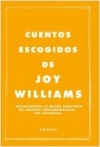Editorial Seix Barral
Literature of discovery
Seix Barral was founded in 1911 as a graphic arts company, and it soon became integrated into Barcelona’s publishing tradition and went on to evolve into a reference point in Spain and Latin America. At the relevant times it was alert to the new post-war narrative and to the Spanish-American literature boom, and today its magnificent catalogue combines the prestige of consolidated authors with a decided commitment to works of recent creation. In 1982, Seix Barral became a part of Grupo Planeta.
Seix Barral has published the work of outstanding authors in the Spanish language: Luis Goytisolo, Juan Marsé, Eduardo Mendoza, Rosa Regàs, Cervantes Prize winner Jorge Luis Borges, and Nobel Prize winners Nobel Mario Vargas Llosa, Camilo José Cela, Pablo Neruda and Octavio Paz. Its catalogue also includes foreign authors of the stature of Ernest Hemingway (also a Nobel Prize winner), Virginia Woolf, Don DeLillo, Patrick Süskind and the promising new author of Scandinavian literature, Åsa Larsson.
In 1955 it launched the Biblioteca Breve collection, which brings together great authors who have revitalised the literary panorama in the Spanish language. Another emblematic collection, which owes its name to the international meetings bringing writers and publishers together in Mallorca in the 1960s, is Biblioteca Formentor, which is devoted to works by foreign authors. Seix Barral has grown with new collections, and anticipating the later tendency for crossover literature, it created Biblioteca Furtiva, with the aim of making quality literature more accessible for all audiences.
Since 1958, Seix Barral has awarded the Biblioteca Breve Prize for novels in Spanish, one of the most prestigious accolades in the Spanish literary arena. In 1972 the prize ceased to be awarded until the company reinstated it once more in 1999. On the list of prize winners from its first era are such names in Spanish-American literature as Luis Goytisolo, Juan Marsé, Juan Benet, Guillermo Cabrera Infante and Mario Vargas Llosa. And these days it maintains its initial aim of “stimulating young writers to become a part of the European literature renewal movement”.




























